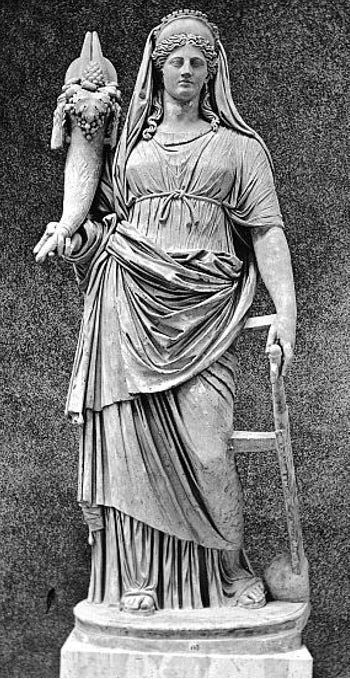
Having well established the Geniture, and in particular examined the Fortitudes and Debilities of the Planets, observe if in the Scheme you find three or four Planets in their essential dignities, or if they receive one another out of such dignities, for then the heavens declare, that the Native shall enjoy a manifest and ample fortune, shall live gallantly and in much esteem, according to the quality, and above the ordinary Vogue of his Birth, and that he shall manage the actions of his whole life, for the greatest part thereof, with happy and admirable success: On the contrary, when most of the planets are either in their Falls or Detriments, or in abject houses of Heaven, or Peregrine, such persons shall generally be involved with many infelicities, one mischief ever following in the neck of another. – Christian Astrology, William Lilly
I had a question recently regarding whether someone could be born unlucky. It’s sure to raise a few modern eyebrows, but from the Ancient Greeks all the way through the Renaissance and Medieval period, the answer would have been a resounding yes.
Tyche happens
To the Greek historian Polybious, Tyche (Fortuna) was at once a manifestation of divine providence, a karmic force that punished the wicked and the mysterious, acausal principle responsible for completely inexplicable events. Shit happened in Ancient Greece, too, but it was Tyche who was thought to be behind it. This inconstancy and seeming randomness was celebrated in the Orphic Hymn to the Goddess Tyche: “In thee, our various mortal life is found, and some from thee hi copious wealth abound; / While others mourn thy hand averse to bless, in all the bitterness of deep distress.”
The Romans likewise worshipped her as the goddess Fortuna associating her with the horn of plenty, her bountiful gifts emanating from her father Jupiter, and depicting her blindfolded to explain the haphazard way in which she distributed her gifts.
By the time we get to William Lilly, Fortuna has been Christianised and her fickle nature is explained away as the mysterious and entirely unknowable divine plan, although her dual nature, now seen as partly angelic and partly demonic, can be seen in her medieval depictions where she is shown as two-faced as Fortuna Bifrons.
Tyche – she loves me …
The Hellenic astrologers like Paulus Alexandrinus and Vettius Valens associated an individual’s personal tyche or fortune to be intimately blinked to the luminaries, particularly the sect light, and with the Lot of Fortune, a point in the chart calculated by considering the longitudinal distance between the Sun and the Moon and extending this length from the ascendant. This Lot of Fortune, as well as its dispositor, was intimately connected to the good fortune, wealth and even bodily health that befalls the native.
Lilly’s rationale is to examine the general fortune or otherwise of the native by examining the strength of all of the planets in the chart given that they are significators of such things as wealth, career, relationships, health and children, and so on. If these significators are strong and not afflicted by aspects to the malefics, the good things that they signify are likely to manifest in the life of the native without much trouble. If the planets, however, are weak or impeded, then it is less likely that the gifts fate has to bestow are going to be in good condition when they arrive, and they arrive after delays and difficulties. Lilly also uses the strength of the luminaries as confirmation for good or bad fortune, and gives some indications that Tyche (or Divine Providence) loves you in the quotation above.
Of course most people will have a mix of strong and weak planets, in fortunate and unfortunate houses, and they show, as Lilly puts it, “an unequal Fortune, variable, ever subject to great mutation, so that the Native may in many parts of his life be extremely happy, and live splendidly, and at other times most miserable, and in a dejected condition…”
… She loves me not
Lilly also gives us some some signs to look out for that indicate that fate may not be very kind to us. If:
1) the luminaries are peregrine and their dispositors in their fall or detriment, or in unfortunate houses
2) the two benefics are weak and peregrine, or unfortunate
3) the two malefics are in the same quarter of heaven
4) Saturn, Mars, the South Node and Mercury are the principal significators of happiness
5) the planets are slow in motion
Then Lilly tells us “the Native may expect many calamities, and much misery for the most part of his life.”
